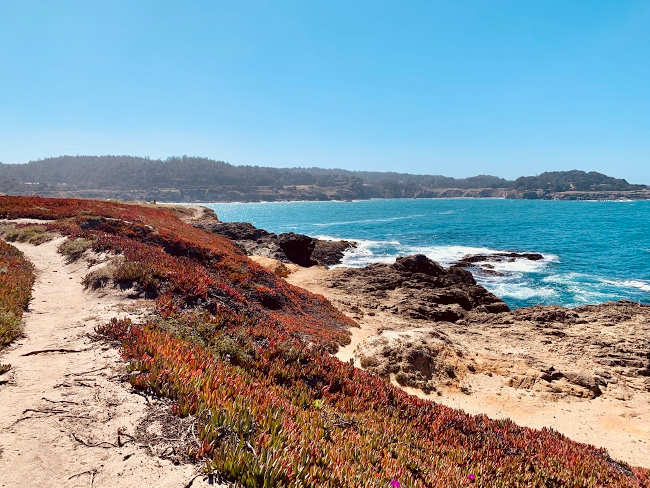
NORTH COAST, Calif. — On Tuesday, the National Oceanic and Atmospheric Administration, or NOAA, announced the awards that are recommended for funding under the Transformational Habitat Restoration & Coastal Resilience grant program, with Mendocino College to be among the grantees.
The Nature Conservancy California has been recommended to receive $18 million over three years to launch the Pacific Coast Ocean Restoration Initiative, a comprehensive, collaborative statewide effort aimed at restoring and recovering degraded marine ecosystems across California.
This funding will enable TNC and a coalition of partners spanning the state — including the California Department of Fish and Wildlife, California Ocean Protection Council, Greater Farallones Association, Mendocino College, The Bay Foundation, Aquarium of the Pacific, the California Academy of Sciences, Sunflower Star Laboratory, Paua Marine Research Group, and University of California Santa Barbara — to lead efforts to help recover the federally endangered white abalone and the International Union for Conservation of Nature critically endangered sunflower sea star.
Additionally, the initiative will further advance restoration efforts for California’s kelp forests and will also pilot an innovative marine conservation workforce development program in collaboration with a community college, potentially scaling across the state's community college system.
“This ambitious, partnership-driven initiative will leverage the incredible work done to date, and the contributions from a diverse suite of partners, to advance a new model for coordinated and effective marine restoration and endangered species recovery that can deliver transformative impact for rocky reef ecosystems and coastal communities in this region,” said Norah Eddy, Ocean Recovery Program director at TNC California. “It also serves as a model for similar efforts elsewhere around the country and world.”
Kelp forest and rocky reef ecosystems are vital, supporting thousands of marine species and coastal communities from San Diego to the Oregon border, contributing hundreds of millions of dollars to California’s economy annually.
However, warming waters, disease, and human impacts have severely disrupted these ecosystems.
The white abalone, listed as endangered under the Endangered Species Act in 2001, and the sunflower sea star, which experienced a catastrophic decline from 2013 to 2016 due to disease, illustrate the urgent need for intervention.
These changing ocean conditions have led to a proliferation of purple urchins, which in part, have decimated bull kelp forests by over 96% in northern California.
“This project and its partnerships enable Mendocino College to enhance our workforce development curriculum, specifically supporting the creation of a marine ecosystem restoration program, aimed at building a diverse and climate-resilient workforce,” said Tim Karas, president/superintendent of Mendocino College. "As a Minority Serving Institution and Hispanic Serving Institution, we are committed to providing opportunities for historically underserved communities. This project will help us develop the necessary infrastructure and curriculum to equip our students with the skills needed for ocean restoration, significantly impacting workforce development and marine restoration efforts in our region."
The Pacific Coast Ocean Restoration Initiative is poised to address these challenges. For over a decade, scientists and practitioners through the leadership of groups like the above-mentioned Initiative partners have laid the groundwork for important restoration efforts across California’s coast.
The NOAA grant, funded through the Bipartisan Infrastructure Law and Inflation Reduction Act, will support critical infrastructure investments necessary to expand these restoration efforts.
"NOAA is proud to be supporting The Nature Conservancy and partners as they launch this innovative initiative," said Carrie Selberg Robinson, director of the NOAA Fisheries Office of Habitat Conservation. "Their work to catalyze and coordinate restoration across California will support the many species that rely on rocky reef and kelp habitats."
As the coalition partners embark on this groundbreaking initiative, the vision is clear: this is just the beginning of a series of milestones aimed at recovering endangered and threatened species and revitalizing marine habitats.
Officials said the Pacific Coast Ocean Restoration Initiative represents an exciting and transformative step forward in ensuring the health and resilience of California’s coastal ecosystems for generations to come.

 How to resolve AdBlock issue?
How to resolve AdBlock issue? 





